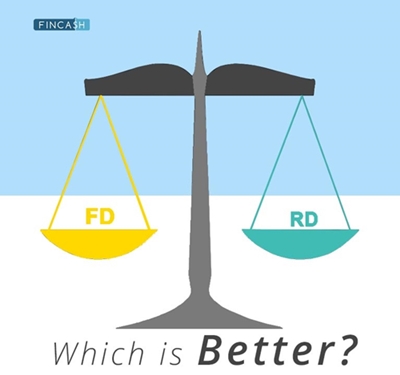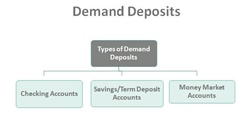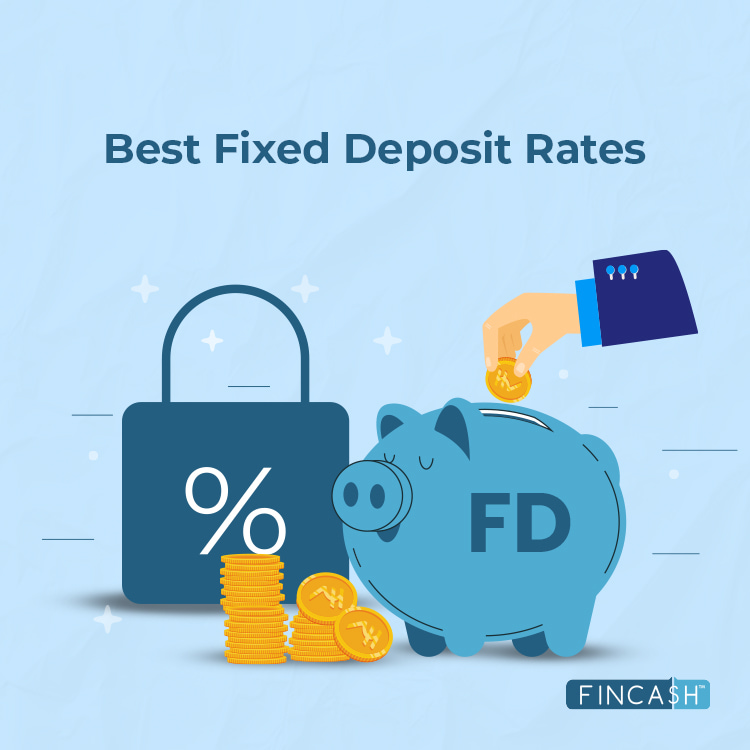
Table of Contents
Certificate Of Deposit (CD)
What is a Certificate Of Deposit?
A Certificate of Deposit (CD) is a low-risk investment product offered by banks and financial institutions that allows individuals to deposit their money for a fixed period of time in exchange for a guaranteed return, known as interest.

CDs have a fixed maturity date and a specified Fixed Interest Rate that does not fluctuate throughout the investment term.
One key feature of a CD is that it restricts early withdrawal of funds, meaning you cannot access the money until the maturity date. This makes CDs a stable investment option for those looking to grow their savings with minimal risk.
When a CD reaches its maturity date, the original amount (the principal) plus the interest earned is available for withdrawal. Some CDs may automatically renew upon maturity, Offering the same or a revised interest rate.
Example:
Let’s say you deposit Rs. 1,00,000 in a CD for one year at an interest rate of 6%. By the end of the year, you will receive Rs. 1,06,000 (Rs. 1,00,000 principal + Rs. 6,000 interest).
Salient Features of a Certificate of Deposit (CD)
1. Maturity Period
CDs are typically issued with a maturity period that ranges from three months to five years. The most common terms are 1 year, 2 years, and 3 years. At the time of issuance, the Bank will define the interest rate based on the duration of the CD.
Short-term CDs (less than one year) typically offer lower interest rates, while long-term CDs (over one year) offer higher returns.
Example: If you invest Rs. 5,00,000 in a 1-year CD with an interest rate of 6%, at the end of the term, you will get back your principal plus Rs. 30,000 as interest. However, a 5-year CD might offer a higher rate, say 7%, making it more lucrative over time.
2. Eligibility
CDs can be issued to a wide Range of investors, including:
- Individuals: Anyone with a bank account can invest in a CD.
- Trusts and Associations: These entities can use CDs to park their funds securely.
- Non-Resident Indians (NRIs): CDs are available for NRIs on a non-repatriable Basis.
To be eligible for a CD, an investor must meet the bank's minimum deposit requirements. These requirements vary, but typically, the minimum amount for a CD is Rs. 5,00,000.
Talk to our investment specialist
3. Denomination
The minimum investment amount for a CD is usually Rs. 5,00,000. Additionally, if the investment exceeds this amount, it must be in multiples of Rs. 1,00,000.
4. Transferability
Physical CDs: These can be transferred through endorsement and delivery. This means that if you wish to sell or transfer your CD before maturity, you can do so by endorsing the document to another party.
Dematerialized CDs: In digital or demat form, these can be transferred just like stocks or Bonds, through an electronic process.
Example: If you hold a physical CD worth Rs. 10,00,000, you could transfer it to someone else by endorsing it, or if it's in demat form, you can transfer it electronically just like trading shares.
Interest Rates and Returns on CD
The interest rate on a CD depends on several factors, including the term of the CD and the prevailing Market rates. Generally, the longer the term, the higher the interest rate. This makes CDs an attractive option for risk-averse investors seeking guaranteed returns over a set period.
Interest on CDs can be paid monthly, quarterly, or annually. Many investors prefer quarterly or annual interest payouts to generate a steady Income stream.
Tip: When considering a CD, always compare the interest rates offered by various banks to get the best return on your investment.
Advantages of Investing in Certificates of Deposit
Low Risk: As a government-backed product, CDs are among the safest investment options available. They offer predictable returns and are generally not subject to market Volatility.
Guaranteed Returns: Unlike other investment options such as stocks or Mutual Funds, the returns from a CD are fixed. This provides peace of mind to investors.
Liquidity at Maturity: Although CDs restrict early withdrawals, once they mature, they offer full liquidity, with both principal and interest available.
Flexibility in Terms: You can choose the term that best suits your Financial goals, whether it's a short-term goal or a long-term investment strategy.
Disadvantages of CDs
Early Withdrawal Penalties: If you withdraw funds before the maturity date, you will face penalties, including a loss of interest earned.
Lower Returns in a Rising Interest Rate Environment: If interest rates rise after you’ve locked in your rate, you may miss out on higher returns available in the market.
Limited Flexibility: Once the funds are locked in, you cannot make changes to the terms or access the money without penalties.
How to Choose the Right CD for You?
When selecting a CD, consider the following:
- Investment Horizon: How long can you afford to keep the money invested? If you need access to the funds sooner, a shorter-term CD might be the right choice.
- Interest Rates: Look for competitive interest rates to maximize returns.
- Penalty Terms: Be aware of the penalties for early withdrawal. If you think you may need the money before maturity, a liquid or flexible CD may be better suited.
Conclusion
A Certificate of Deposit (CD) is an excellent investment option for individuals seeking a low-risk, stable return. It provides peace of mind through fixed interest rates and maturity dates, making it ideal for risk-averse investors. Whether you're planning for a short-term goal or long-term savings, CDs can help grow your wealth securely.
All efforts have been made to ensure the information provided here is accurate. However, no guarantees are made regarding correctness of data. Please verify with scheme information document before making any investment.












